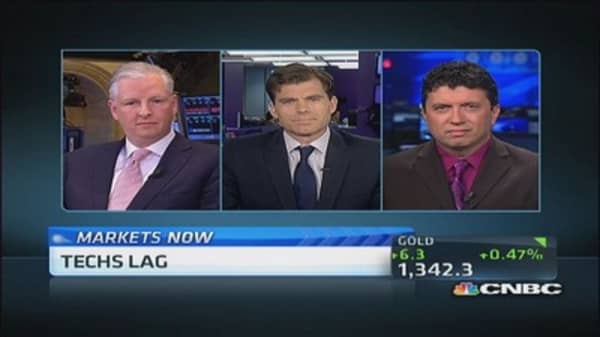It's always interesting to watch market bears give up the fight, and it looks like the bulls have just scored another recruit.
Well, sort of.
Capital Economics, based in London and Toronto and one of the more accurate global forecasters, has quietly surrendered its idea that the stock market was in for a substantial second half selloff.
(Read more: 'Walking Dead' market: Why the rally keeps going)
At the start of the year, the firm had forecast a 1,500 target for the S&P 500, which the stock market index has blown away.
Capital quietly changed that number to a 1,600, but now even seems unsure of that target, which would represent a 5 percent selloff from the current level.





